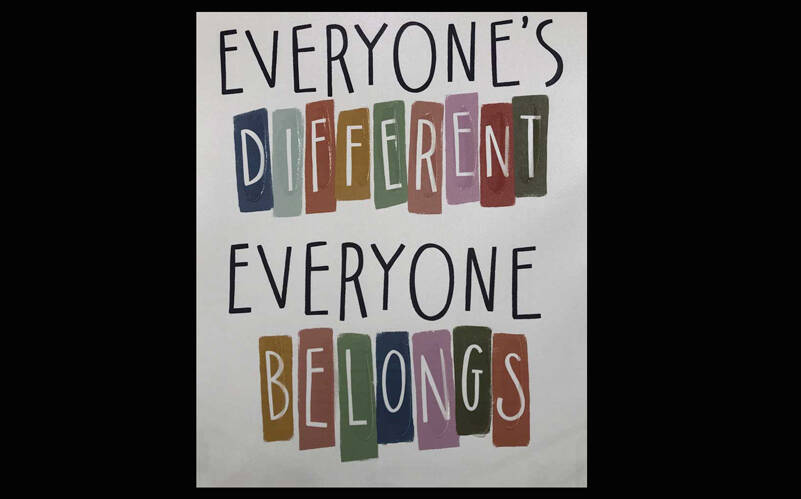By Morf Morford
Tacoma Daily Index
January is usually the month that begins with effusive pledges, generally known as resolutions, that flavor, maybe even guide, the first few weeks of the new year.
Maybe it’s because making, and then discarding New Year’s resolutions has become so predictable. Or maybe 2021 was such a difficult year in so many ways that it was a challenge for most of us to come up with a resolution that we hadn’t made and failed to keep a dozen times before. Or perhaps many of us couldn’t claim an area of resolve that we were convinced would make any difference in this, or maybe even any, new year.
For either of those, or any other reason, few people I know made any New Year’s resolutions, or even goals for the new year. What I have been seeing though, is rather interesting.
The almost visceral response I see is that many of us just want to shake off any residue of 2020-21, and, as far as possible, pretend it never happened. From an eternally contested presidential election to chaos and destruction in our nation’s capitol, to economic doldrums, to a national pandemic death rate surpassing 800,000, to the “great resignation,” to supply and labor shortages in every category of our lives, to inflation and empty grocery store shelves, it seemed like nothing to celebrate.
Everyone I know seems to want, more than anything, a truly new year, one distinct from the others, one unrecognizably different, not only from those two years before it, but from every year.
So instead of goals or resolutions, I see people making more solid, concrete moves that are larger than any given year, and even larger than the individuals that, in previous years, made such pledges.
What I see, in fact, is more of a recognition of who “we” are – and what we are becoming and what “we” stand for and believe in. We also struggle with the issue of who “we” really is.
We never would have had the Black Lives Matter movement if it was not so clear in law, history and public policy, from housing covenants to drug enforcement and “minor” traffic citations that turned into deaths, that black lives have been systematically targeted.
What I see, among people I know, and sources I read and listen to (so this may be a skewed sample) is, as I mentioned, a larger view, one that could be summed up by this statement, usually attributed to John Wesley;
Do all the good you can,
By all the means you can,
In all the ways you can,
In all the places you can,
At all the times you can,
To all the people you can,
As long as ever you can.
There’s nothing new, or revolutionary or tied to a calendar, or even religious or philosophical about a phrase like this.
Maybe it’s because January follows a month (or more) packed with holidays, or maybe it’s because it is literally the darkest month of the year, but for whatever reason January just seems long. January, like six other months, has 31 days, but it certainly feels longer.
And that extra time, especially in a season of cold weather and less daylight, tends to lead most of us, in some way, to a bit more reflection than the other months.
January, for most of us, is a time of beginnings as well as endings. January is time, not so much FOR a new start, but a time to recalibrate, refocus and to prepare for the new beginnings that may not take shape, or become visible, for weeks or months.
So whether it is a garden, career, relationship or personal health you are considering, here are some tips on what sets successful people apart from the unsuccessful.
Adapting to change
Whether it’s the weather or company policy or an election result we don’t like, adapting to, and accepting gracefully, results you might not “like” is perhaps the most definitive sign of being an adult. Hiding from, or denying any change, from heat to cold to a new boss, is rarely a productive strategy. Adaptability, while keeping our essential essence, is, after all, the most basic, hidden-in-plain sight survival skill.
Wanting others to succeed versus secretly hoping others fail
Maybe it’s just me, but somehow wanting (or ensuring) that others on your team, in your family or in your community or industry fail is one of those elements that makes everyone look bad. The reality is that the better your team looks, the better you look.
This is behavior I might expect from a toddler – not from a business associate or family member.
But it is common – and tied to the next one;
Accepting responsibility versus blaming others
Taking responsibility is what leaders do. Any leader, in any capacity, is the literal bottom-line, the one who sets the stage and signs off on the final decision. And, the best of them, on a continuing basis, give credit to the team that made it all come together.
What we talk about
Great minds discuss ideas; average minds discuss events; small minds discuss people.
What do you, and people you spend time with, focus on in everyday conversations? Whatever it is now, look beyond it from now on.
Volume is not convincing
One important principle is that, in almost any context, the ancient proverb still holds true; an empty vessel make the most noise.
Whether it is a musical instrument or an internet troll, or a ranting leader, the emptier it is, the louder it is. And, in the case of internet trolls, or those annoying people with opinions, the less they know, the more certain they are. To put it simply, these are not the people to rely on in times of crisis.
Anyone can make noise, but a convincing argument takes a bit more time.
Opinions are often reflexive. Insights come from seeing beyond the obvious and predictable.
Operating from a transformational perspective instead of a transactional perspective
Several years ago I heard an interview with a film director who observed that every movie is about the same thing; transformation. The main character is a very different person at the end of the story than s/he was at the beginning. Every career, relationship and adventure should have the same result. Do we learn from our experience? Or do we refuse to?
A little appreciation goes a long way
I got a note from a website that told me that I was “almost Highly Recommended”. That’s the story of my life.
A little appreciation can make a huge difference.
It has very little cost, but at home or at work, it is almost certainly your best investment.





